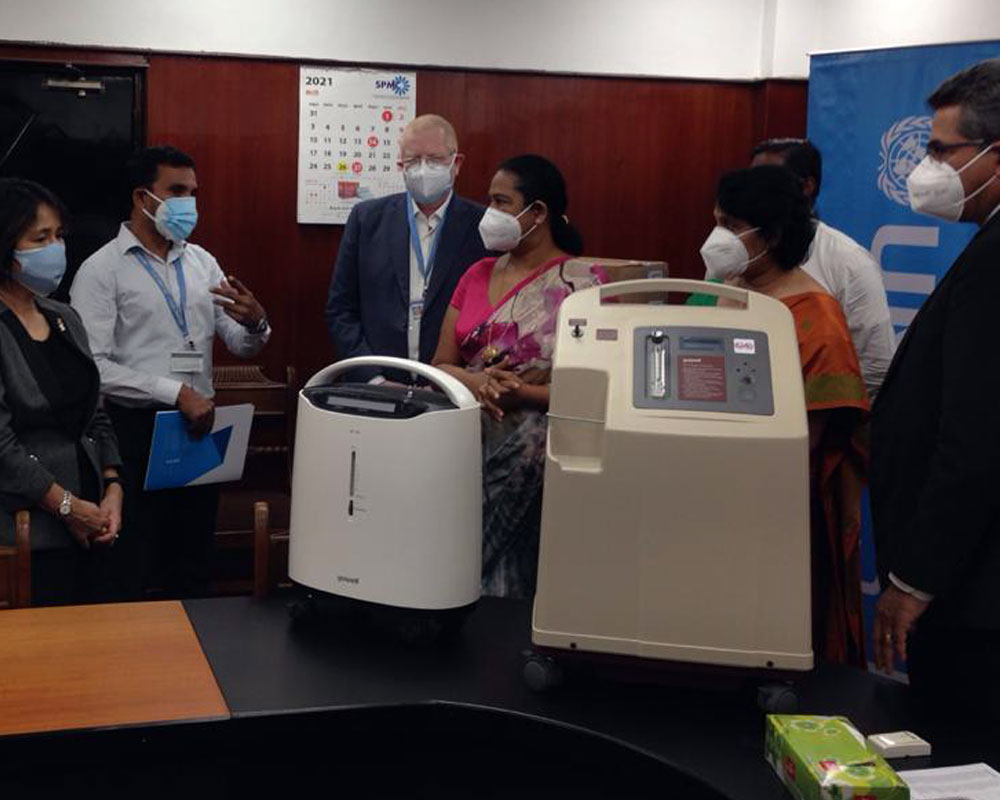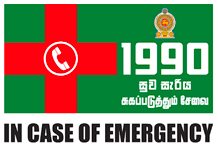Challenge
Sri Lanka was extremely vulnerable to the spread of COVID-19 because of its thriving tourism industry and large expatriate population. Since the detection of the first case in January 2020, Sri Lanka has successfully managed two waves of the pandemic, but struggled to contain a third wave that began in April 2021.
The Government of Sri Lanka took strict measures to curb the spread of the disease, and island-wide travel restrictions and isolation areas were imposed. With the third wave, efforts were focused on enforcing prevention measures, strengthening COVID-19 treatment facilities around the country, and deploying the COVID-19 vaccination program, particularly in high-risk areas and among vulnerable populations.
Already facing fiscal constraints, the pandemic placed additional resource demands on the country. The government worked with its development partners to take urgent action to mobilize resources to respond to the health and economic challenges posed by the pandemic.

Approach
In early 2020, the World Bank responded quickly to support Sri Lanka’s pandemic response by leveraging the dedicated COVID-19 Fast-Track Facility to mobilize resources and prepare the project in just 10 working days. Given the urgency strategies and project priorities were built on gaps and needs outlined in the Health Disaster Preparedness, Response and Recovery plan that was being developed by the Ministry of Health (MoH) and development partners including the World Health Organization (WHO), the World Bank and Asian Development Bank (ADB). This allowed for swift preparation, while ensuring coordinated financing support by multiple partners.
The project adopted a flexible approach to respond to urgent needs, enabling reimbursement for routine goods and operating expenditures for facilities that were engaged in the COVID-19 response. This helped national and district level facilities quickly upgrade their wards to make them COVID-ready.
Longer-term activities to strengthen the country’s pandemic preparedness and response include establishing COVID-19 isolation and treatment facilities around the country, develop the existing laboratory system to improve and increase testing and diagnostic capacity, and strengthening the country’s infection control and surveillance systems.
Bank Group Contribution
The World Bank has provided $387.03 million in financing for the project. This includes a $35 million loan from the International Bank for Reconstruction and Development (IBRD), $180.84 million in concessional and non-concessional funding from the International Development Association (IDA), and a grant of $1.72 million from the Pandemic Emergency Financing Facility (PEFF). Additional financing of $88.97 million was approved in June 2020 to provide scaled-up social protection measures to vulnerable communities, and a second additional financing of 80.50 million was approved in April 2021 to support vaccine procurement and deployment.
Partners
Sri Lanka’s COVID-19 management strategy is led by the Ministry of Health, and is implemented with support from a network of development partners including WHO, UNICEF and other United Nations agencies. The Bank has actively participated in the Emergency Health Cluster meetings, chaired by the WHO, and is also Co-Chair of the Health Development Partner Working Group, which will be coordinating the medium- to long-term plans for health preparedness. UNICEF has also been contracted under the project to support the Ministry of Health in the procurement of essential medical consumables and PPEs.
The regular dialogue and coordination with the partner network has helped to prevent duplication and has enabled the Bank to identify the gaps in the country’s emergency response strategy and to address these gaps through the project. This is strengthened by the close working relationship with the Ministry of Health, established through the previous and ongoing projects including the Primary Health Care Systems Strengthening Project (PSSP)
A memorandum of understanding has been signed between the GoSL and UNICEF to implement risk communication activities under the project. The campaign, carried out in collaboration with the Health Promotion Bureau (HPB) tracks public perception of COVID-appropriate behavior, vaccine hesitancy, news and possible misinformation. A national media campaign was launched in May 2021 on national television and through social media to disseminate public information on infection prevention and control and safety protocols related to the resumption of daily activities. The campaign, which included short video clips, public service announcements, news segments, and animated advertisements, has reached approximately 15 million people through national television, and has recorded a reach of 5.3 million, with 1.6 million engagements on social media







